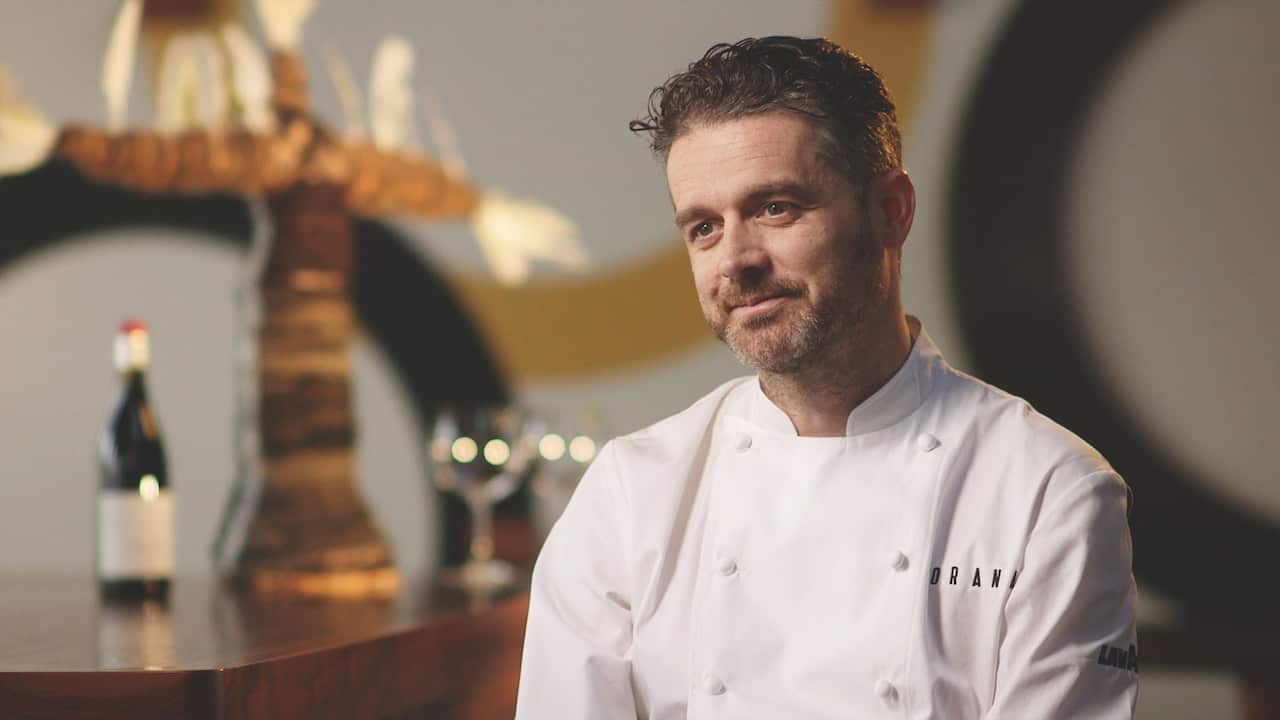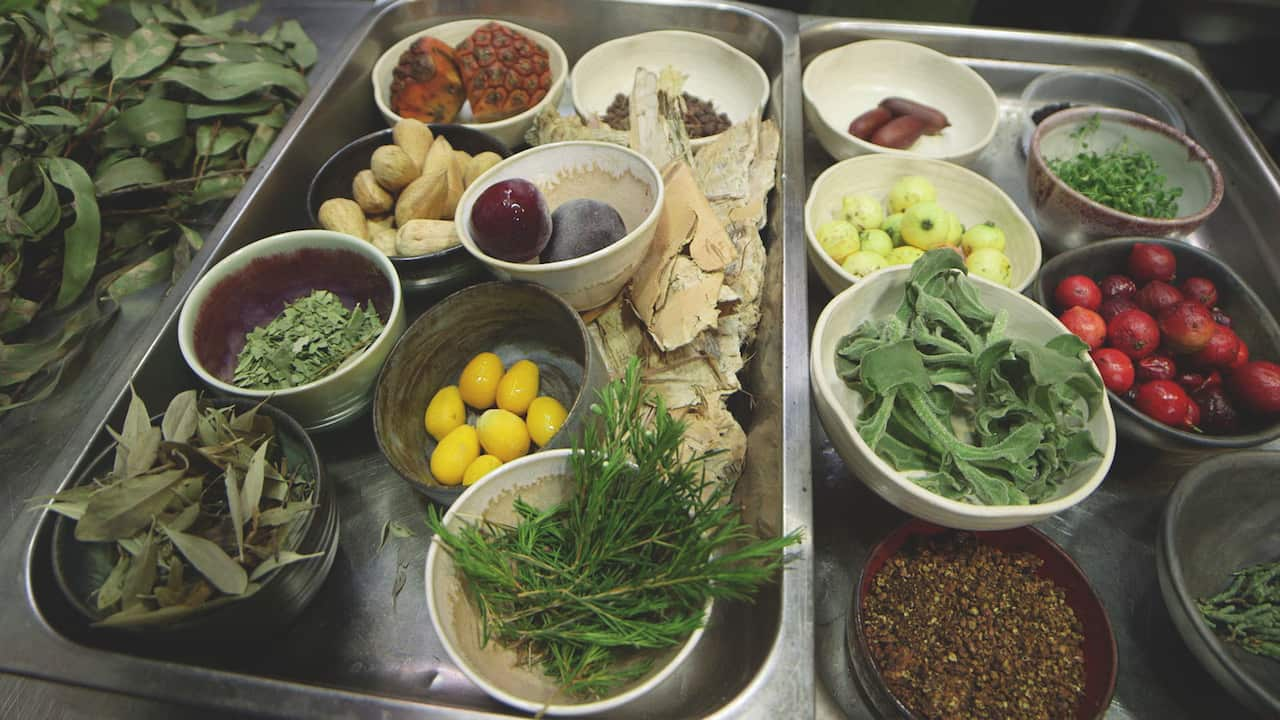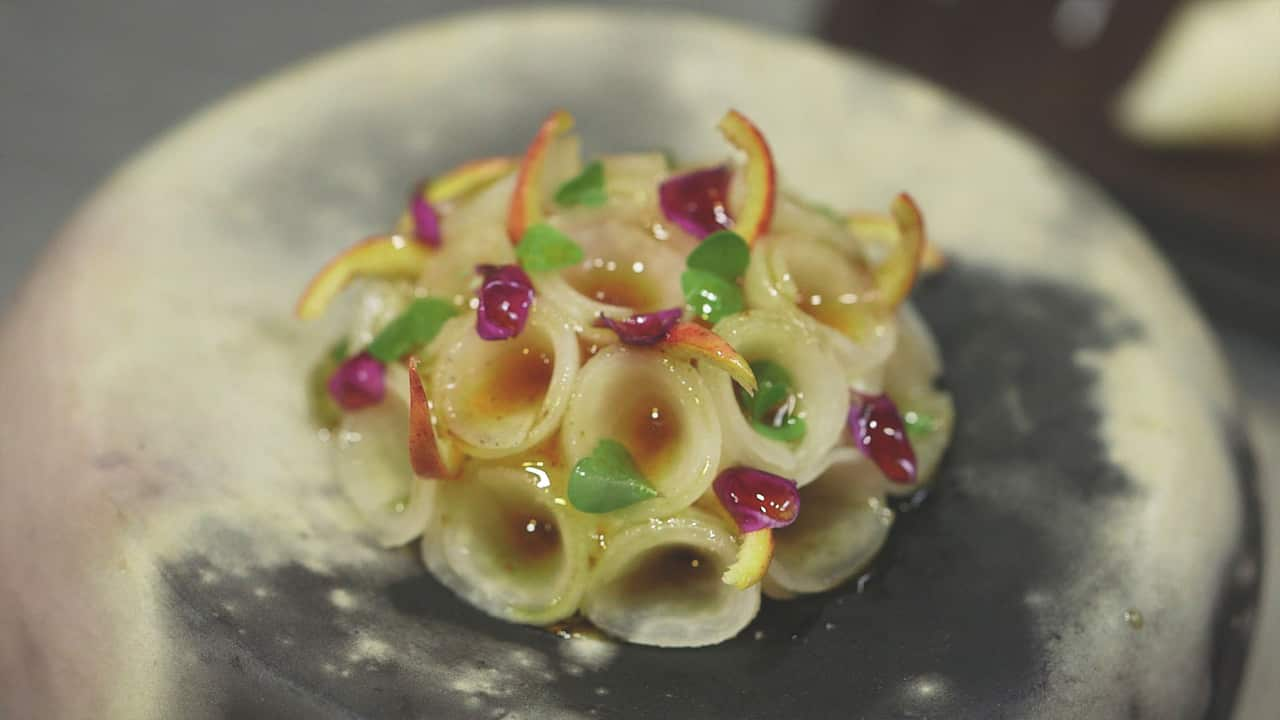Chef Jock Zonfrillo is fishing by the side of the river as he outlines his philosophy for Orana, his three-hatted restaurant in Adelaide which was named ‘Australia’s Restaurant of the Year’ in the prestigious Good Food Awards 2019.
“Y’know one of the fundamental lessons I learned was, give back more than you take,” Jock explains.
“To create a restaurant and say ‘yeah it does great food and it's delicious and whatever’ is that really enough?”
Jock’s dishes are lovingly crafted and include native ingredients, which is one reason his menu draws foodies from around the world.
Jock has also achieved global acclaim, winning the prestigious Basque Culinary World Prize 2018, an honour he calls the ‘Chef’s Oscar’.
The award recognizes his work celebrating Australia’s Indigenous cultures, who’ve farmed and thrived on the land for more than 60,000 years.
Hard lessons
Jock was born and raised in Glasgow, which he describes as a tough place to grow up.
“Even in school, I got caught up with the wrong people. And I struggled with a drug addiction for a long period of time. And a lot of friends from school didn’t make it and died of overdoses or a number of other things,” he recalls sadly.
Jock found a new future in food while training under celebrity Chef Marco Pierre White, the youngest chef to ever win three Michelin stars.

“When you’re a drug addict as I was, there has to be something more compelling than that I order for you to stop or change," says Jock.
"I was so lucky to find food because it was compelling enough for me to move away from that life."
“Food brings people together.”
In Scotland, Jock also learned to study the environment and to incorporate local foods into his cooking.
Bush foods
Arriving in Sydney as a young chef, Jock became fascinated by Australian plants and animals. So he sought information from a true local.
“I was working in hatted restaurants in Sydney and I didn’t know any Aboriginal people, so I went down to Circular Quay,” Jock explains.
“I introduced myself to this man, whose name was Jimmy, and he was busking with a didgeridoo. And I asked him about his culture and where he was from,” Jock recalls.

That four-hour conversation changed Jock’s life, and led to a growing obsession with indigenous ingredients.
Jock also began to appreciate the very complex relationship between Indigenous cultures and the land, and learned to read signals from nature that would indicate when stingray livers were fat, or when lobsters should be caught.
“And when you hear things like that you think to yourself: that is way more connection than the average person has, anywhere really.
“And as a chef that’s what we’re looking for!”
Bountiful harvest
There are more than 40 native ingredients on the menu at Orana and Jock is an expert at explaining the different tastes and qualities of each.
Through his not-for-profit Orana foundation, more than 1,000 native ingredients are also now documented in the Native Australian Food Data Base.
Its purpose is to help indigenous communities grow and nourish their own food businesses.

“I had to start this restaurant to prove that native foods are delicious and viable to produce. And I also wanted to acknowledge this country’s culture and traditional ingredients,” Jock says.
Many of Orana’s flavours come straight from the Australian bush and that’s because the restaurant has a special license to forage for food in the wild.
Head forager Peter Watts spends his days in the scrub or on the coast looking for seasonal treats.
“I love our eucalyptus and the lemon myrtles,” says Peter.
“And I am proud to share these wild flavours with our guests.”
The Basque Culinary World Prize also awards $150,000 in cash, which Jock aims to put into projects benefiting Indigenous communities.
“That’s how we hope we’re going to give back more than we take,” Jock says smiling.
Sharing business secrets of inspiring entrepreneurs & tips on starting up in Australia's diverse small business sector. Read more about Small Business Secrets
Have a story or comment? Contact Us


